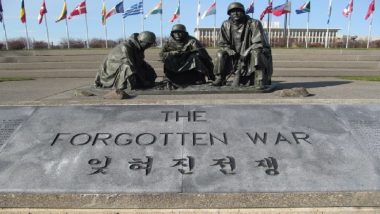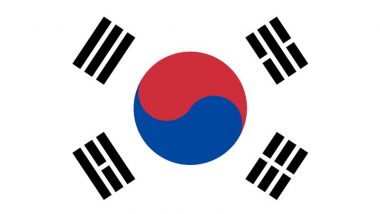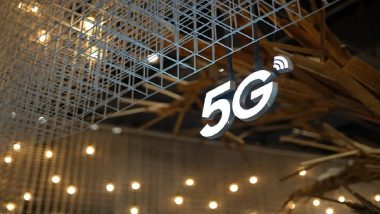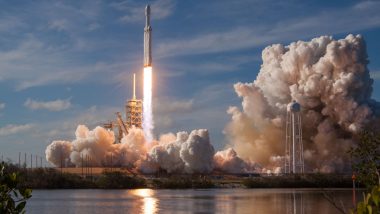The Korean War has been called "the Forgotten War" in the United States. This is because the Americans of that generation and those after do not remember the conflict of 1950s as it was censored and decades later the conversation is often overshadowed by World War II and the Vietnam War.
But Korean peninsula, saw a ferocious war which pitted communist and capitalist forces against each other. Though a tiny land mass, the war on the Korean Peninsula set the tone for Soviet-U.S. rivalry during the Cold War, profoundly shaping the world we live in today, historians said.
Korea was a Japanese colony from 1910 until 1945. It was then occupied by the United States and the Soviet Union at the end of World War II.
The New York Times reports that it was the United States that proposed temporarily dividing the country along the 38th Parallel as a way of maintaining its influence on the peninsula. However, the division of the peninsula lasted in part because of competing visions among Koreans for the country’s future.
In 1948, the U.S.-backed, anti-communist southern administration, based in Seoul, declared itself the Republic of Korea. Soon after, the Soviet-backed, communist northern administration, based in Pyongyang, declared itself the Democratic People's Republic of Korea. Its leader was Kim Il Sung, who fought alongside communist forces during the Chinese civil war and was the grandfather of North Korea's current dictator, Kim Jong Un. On June 25, 1950, Kim Il Sung, installed by the Soviets to lead North Korea, decided to try to reunify the peninsula by force, invading the South.
The war saw South Korea and the United States, fighting under the auspices of the United Nations, against North Korea and China. Other nations contributed troops, too, but U.S. forces did most of the fighting. "The South Korean army virtually collapsed" at the start of the war.
The war devastated the population on the Korean peninsula. There are no official estimates of the number of people killed but estimates put it anywhere between three million and four million people. As many as 70 per cent of the dead may have been civilians.
The devastation suffered in the North was horrific which was subjected to three years of U.S. bombing, including with napalm. Estimates say roughly 25 per cent of North Korea’s prewar population was killed. This suffering of the holocaust has been passed on through the generations in North Korea’s memory which explains their animosity towards the United States and its Presidents who have maintained economic sanctions on the country for its pursuing of nuclear weapons.
The war came to an end through a truce but no official peace treaty was signed and hence the war on the Korean peninsula is technically still on which makes it currently the longest war in world history.
Experts are not sure if U.S. President Donald Trump will achieve his goal of ‘denuclearization’ of the Korean peninsula however, if he could manage to end the war on the Korean peninsula it would still create history.
(The above story first appeared on LatestLY on Jun 12, 2018 04:53 AM IST. For more news and updates on politics, world, sports, entertainment and lifestyle, log on to our website latestly.com).





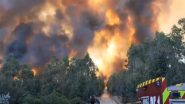




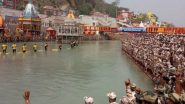


 Quickly
Quickly









